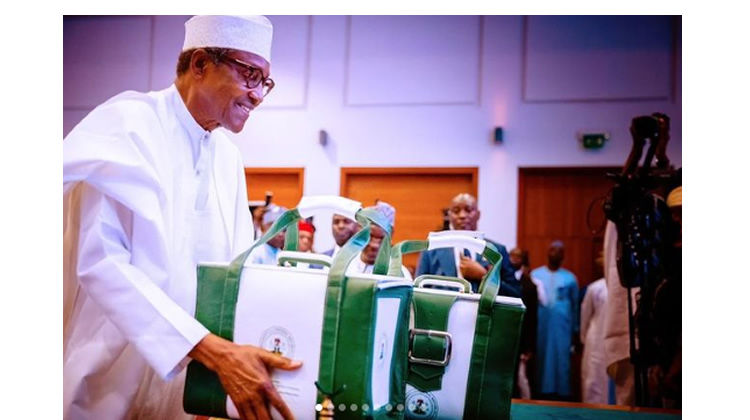
In October, the President, Major General Muhammadu Buhari (retd.), presented the N20.5 trillion 2023 appropriation Bill to the National Assembly.
However, in the CSJ document titled, “Frivolous, Inappropriate, Unclear and Wasteful Estimates in the 2023 Federal Appropriation Bill,” exclusively acquired by The PUNCH, it noted that Nigeria’s revenue is simply inadequate to fund fundamental expenditure.
The Lead Director, CSJ, Eze Onyekpere, noted that Nigeria was undergoing an economic and fiscal crisis of monumental proportions adding that the nation is snatching economic crisis from the jaws of circumstances that support an oil windfall scenario.
He said, “Instead of reaping the benefits of global oil price increase, Nigeria’s oil income dried up and oil authorities in the Ministry of Petroleum Resources and the Nigerian National Petroleum Company Limited told Nigerians questionable stories of oil theft running into 700,000 barrels a day. This amounts to about $70 million a day.
“As of August 2022, the Federal Government of Nigeria’s retained revenue was N4.23trillion while debt service gulped N3.52trillion. The implication is that 83.2% of FGN’s income was dedicated to debt service. Macroeconomic indicators like inflation, interest rates, etc., are all negative.
“In the 2023 executive budget proposals, the aggregate expenditure is N20,507,942,180,704 and the expected revenue is N9,725,863,745,173, and the deficit is N10,782,078,435,531. The expected revenue is 47.4% of the expenditure whilst deficit financing will take care of 52.6% of the expenditure. Debt service at N6.557in is 67.4% of the expected aggregate revenue of N9.725tn.”
In regards to these, Onyekpere said the reasonable expectation was that every available resource in the 2023 federal budget proposal would be targeted at concrete deliverables. Indeed, frivolous, inappropriate, unclear and wasteful expenditure should be eliminated to the minimum.
He added that a larger part of the funding of the budget would be borrowed and it would be foolhardy to borrow and waste the borrowed funds.
He said, “Leadership should be by example. The request of annual routine maintenance of mechanical/electrical installations of the presidential villa of N7.2bn, perpetual purchase of vehicles is not the way to spend borrowed money. The vote to NASS is a bulk sum of N169bn.
“The elected representatives of the people should feel the pain, hunger, frustration, hardship, misery, etc., experienced by the people and show empathy, love and a sense of fellow feeling. 50% of this sum is reasonable in the circumstances. In service-wide votes, various funds which have been replicated over the years include special intervention, special intervention SDG’s 1 and special intervention SDG’s 2.
“Over the years, there is no evidence of the investments in terms of improvements in the living standards of Nigerians. NASS should not approve this without details that will not just be shown to NASS but published on the website of the Budget Office of the Federation like other votes.”
He noted that the National Grazing Reserves under the Ministry of Agriculture and Rural Development had been attracting votes in billions every year, adding that it was an ongoing project.
“Where are the grazing reserves located? The Ministry of Science and Technology, the agencies and research institutes under it have so many laudable projects with very small votes that will simply be wasted if they are invested in the current format. The resources are spread too thin that they will not scratch the surface of the challenges they intend to resolve. The Ministry needs to prioritise its activities so that available funds will not be wasted.”





